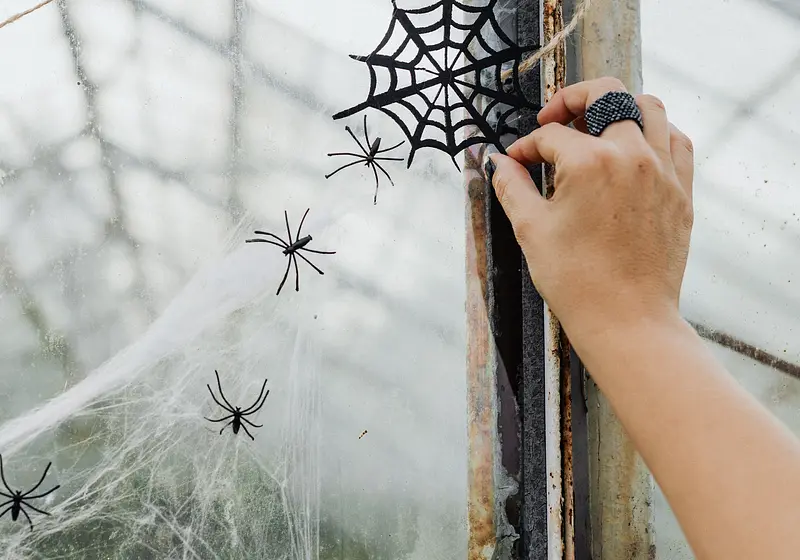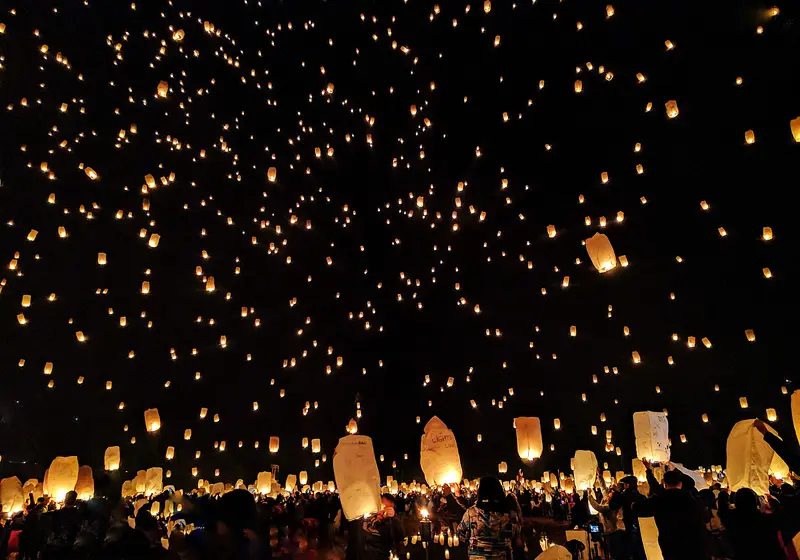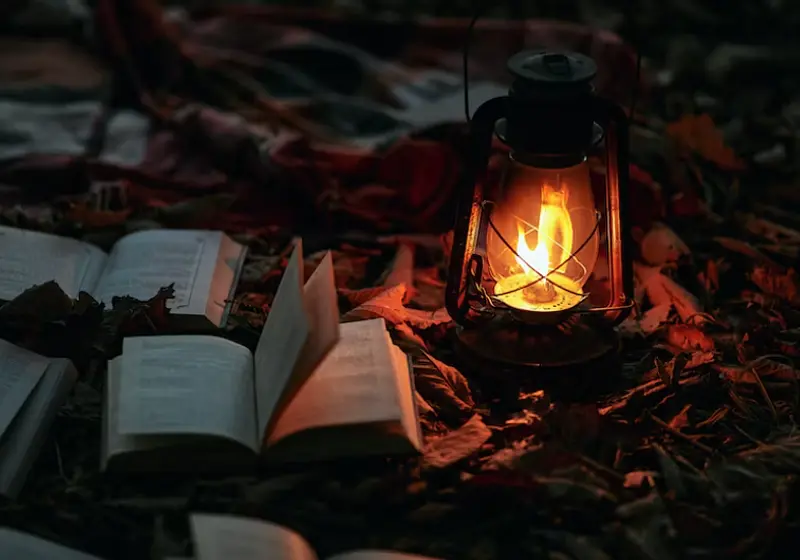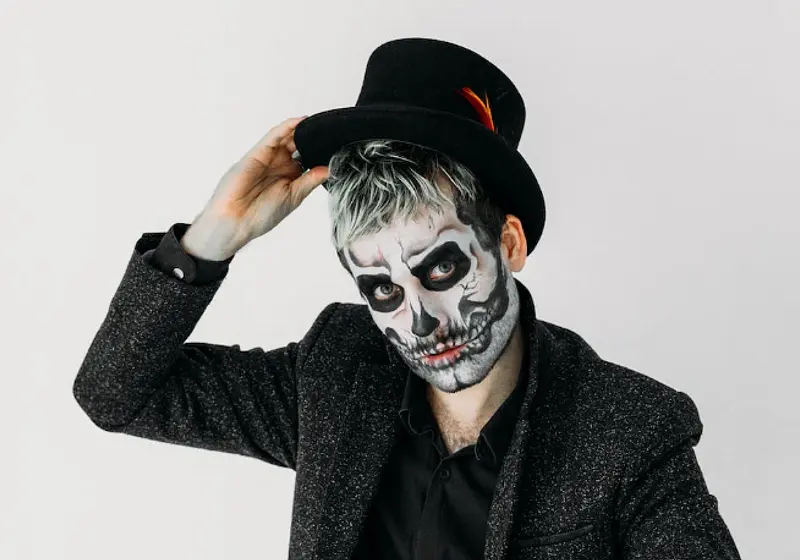Halloween may be over, but similar holidays are celebrated across the world constantly. These holidays are about more than the stress of finding an appealing costume or the joy that comes from jaw-dropping jawbreakers and mouth-watering Snickers.
Origin of Halloween
Halloween wasn't just candy and costumes back then. It comes from the ancient Celtic festival of Samhain. Contrary to what you might think, this is pronounced as "SAH-win." Pagans and Wiccans celebrated Samhain to bless the harvest of the summer.
People wore costumes to ward off evil spirits on Samhain. A few centuries later, Pope Gregory III announced November 1st as a holiday to commemorate saints, and "All Saints Day" borrowed some traditions from Samhain. The evening before All Saints Day was known as All Hallows Eve. That's how Halloween came to be.
There are celebrations like Halloween with "scary" costumes, but it's not meant to be scary. They represent remembrance of loved ones and memories. Whether it's the Day of the Dead or the Ghost Festival, it's about the memories. Ghosts are just lost souls and faint memories, after all.
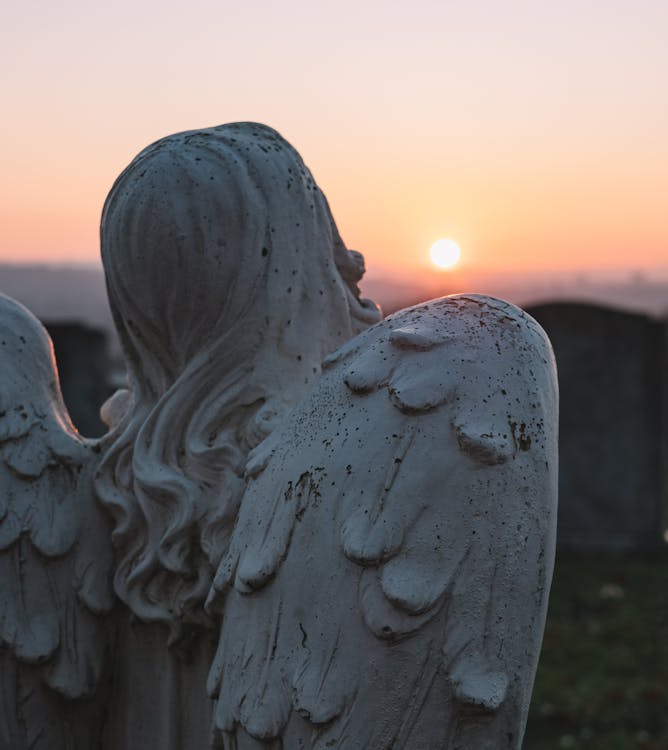
Ellie Burgin from Pexels
Let us slide into your dms 🥰
Get notified of top trending articles like this one every week! (we won't spam you)Guy Fawkes Day
Guy Fawkes Day is celebrated on November 5 in the UK, commemorating the failure of the Gunpowder Plot. The Gunpowder Plot planned to blow up the House of Parliament in order to kill the king. This was led by Catholics enraged by the lack of religious tolerance for them.
Fortunately, a mole in the group put a grinding halt to the operation, so the conspirators were imprisoned and executed. Guy Fawkes was one of the accomplices, so Parliament declared November 5 as Guy Fawkes Day.
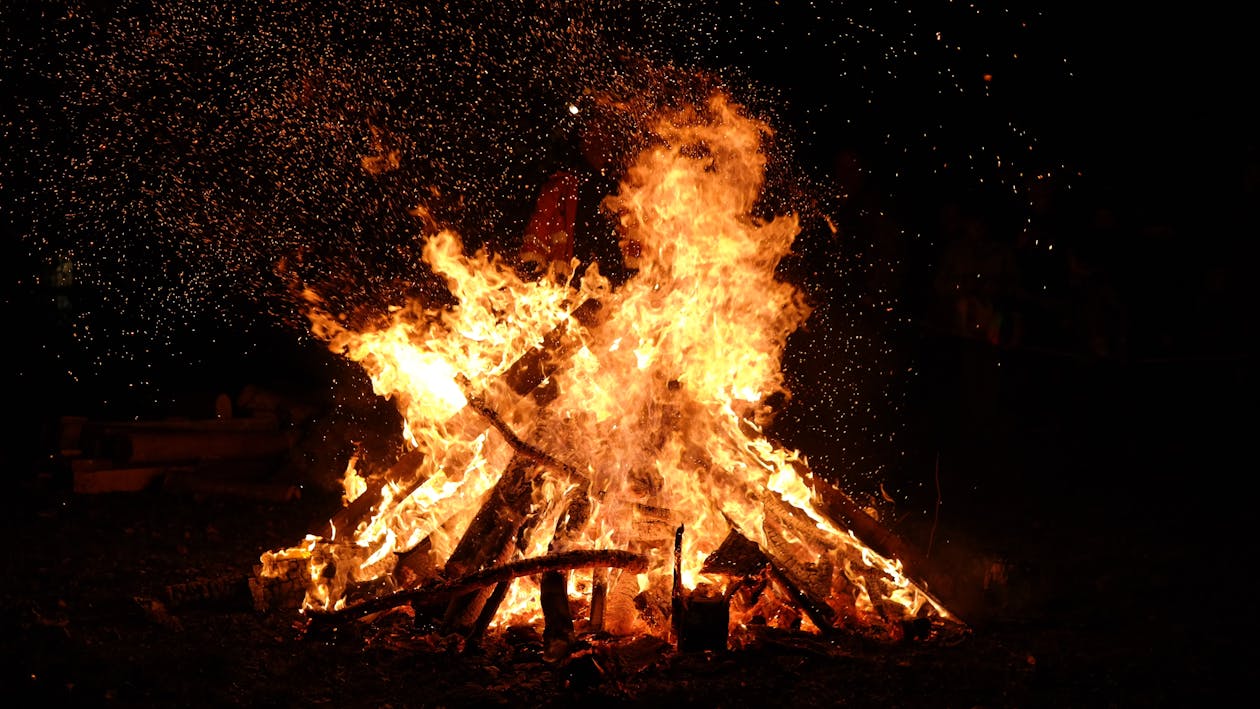
Jens Mahnke from Pexels
Every November 5, bonfires smolder across England as effigies of Guy Fawkes are thrown into them. Another tradition is lighting fireworks. These fireworks represent the explosives that Guy Fawkes planned to bomb Parliament with.
This celebration is a testament to the English resilience. It's now one of the most celebrated holidays in England! There's even a children's rhyme for it!
Remember, remember, the fifth of November
Gunpowder treason and plot
We see no reason
Should ever be forgot…

Take the Quiz: Unlock Your Inner Mystery Drama Character!
Dive into this quiz to find out which iconic mystery drama character you channel the most!
Day of the Dead
The Day of the Dead is a holiday in Mexico that’s celebrated to honor ancestors. The main tradition is to create an altar, or “ofrenda,” with memorabilia and photos of the dead. Families adorn ofrendas with food, marigolds, and candles.
Incense or “copal” is placed on the ofrenda to guide spirits to their destination. Another tradition is to create sugar skulls or “calaveras de azúcar.” These sugar skulls represent souls. The name of the departed soul is written on the forehead and is then placed on the ofrenda. Families want to remember their loved ones without fear of death. This celebration is about the inevitability of death, yet the memories life has to offer us.
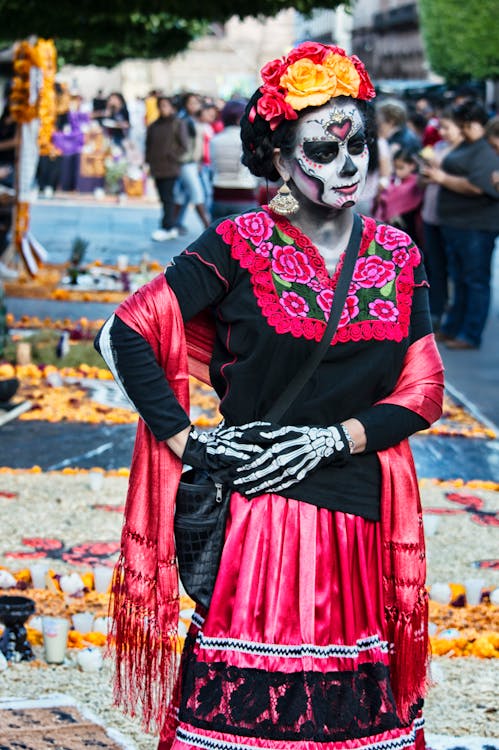
Genaro Servin from Pexels
Ghost Festival
The Ghost Festival is a Buddhist festival celebrated in Southeast and East Asia. On the lunar calendar, the fifteenth day of the seventh month is known as Ghost Day. On this day, the ghosts and spirits of ancestors come out of the lower realm.
Chinese culture sees this day as auspicious since the realms of Heaven and Hell are open. The purpose of celebrating this day is to absolve the sufferings of the deceased. Rituals are performed to honor the ancestors. The main rituals consist of burning incense and burning joss paper. Joss paper is a sheet paper for burning in traditional Chinese ceremonies. Furthermore, meals would be cooked for the deceased. The Ghost Festival is about remembrance and honoring your ancestors.
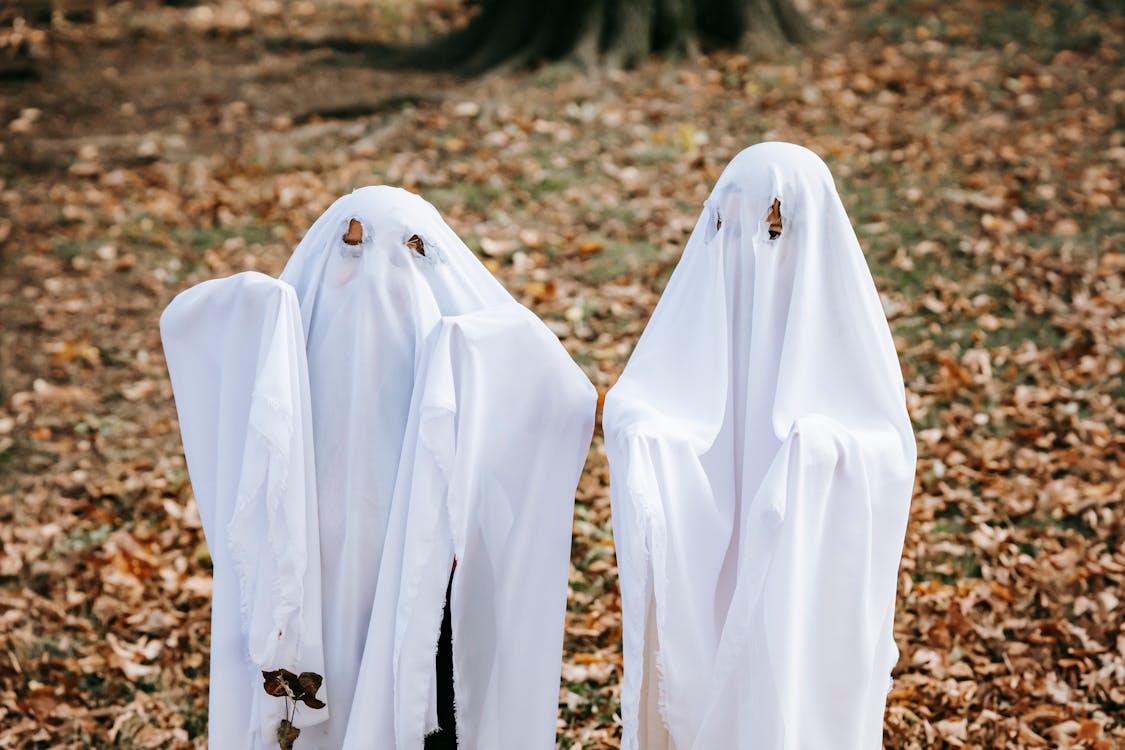
Charles Parker from Pexels
Walpurgis Night
The origins of Walpurgis Night are traced to pagan celebrations of fertility and the advent of spring. Initially, this festival was celebrated on April 30 to commemorate Saint Walpurga, a saint who repelled the effects of witchcraft. Some 1000 years later, Walpurgis Night is celebrated across Northern and Central Europe.
Countries that officially celebrate it are Estonia, the Czech Republic, Finland, Sweden, and Germany. Each country has its own set of traditions. In Sweden, people set off bonfires. In Germany, people celebrate by dressing in costumes to ward off evil spirits. Another tradition in Germany is to hang blessed sprigs of leaves from houses, and people like to leave pieces of bread with butter and honey for phantom hounds.

Andrea Piacquadio from Pexels
Famadihana
Famadihana is a funerary ceremony in Madagascar. During the ceremony, people bring forth their ancestors' bodies and rewrap them in fresh cloth. Then, family members rewrite their names on the cloth to symbolize remembrance. This ceremony reminds us that the dead will always remain alive in our hearts.

Nantenaina Andrianjaka from Pexels
After completing the ceremony, families will dance to music while carrying the corpses over their heads while revolving around the tomb. Finally, relatives will place the corpse back in their tomb. Famadihana is a custom held by the Malagasy people since the 17th century.
The point behind the ceremony is that the spirits of the dead will join the afterworld once the ritual’s complete. Unfortunately, some churches have abandoned the practice due to its “controversy.” Famadihana is experiencing a decline in popularity. This should be a reminder that every culture has its own beliefs and practices, and that’s ok.
Obon
Obon is a Japanese custom to honor the spirits of one’s ancestors. This custom has evolved into a family reunion holiday. Families return to ancestral places during the reunion and clean their ancestors’ graves. It’s been celebrated for over 500 years and includes a type of dance, Bon Odori.
Bon Odori is a style of dancing and folk entertainment. The purpose of the dance is to welcome the spirits of the dead, and the dance style varies from region to region. Each region has its style and music. The typical Bon dance involves people lining up in a circle around a high wooden scaffold, especially for the festival called a yagura.

Satoshi Hirayama from Pexels
Surrounding countries have similar festivals. China has the aforementioned “Ghost Festival,” and Korea has its version of the Bon celebration, “Baekjung.” Additionally, the Japanese diaspora celebrates the Bon festival in places like Brazil, Argentina, Malaysia, and the Philippines! No matter how Obon is celebrated, the bottom line is to respect your ancestors. Without them, you wouldn’t be here!
Pchum Ben
Pchum Ben is a 15-day religious festival in Cambodia where Cambodians honor their ancestors of up to 7 generations. Buddhist monks chant ancient scriptures continuously, without sleeping, to open the gates of hell. Once the gates of hell are opened, the spirits of ancestors are active.
To liberate them, people offer food made to benefit them. Traditionally, householders provide the food to monks, indirectly benefiting the spirits.
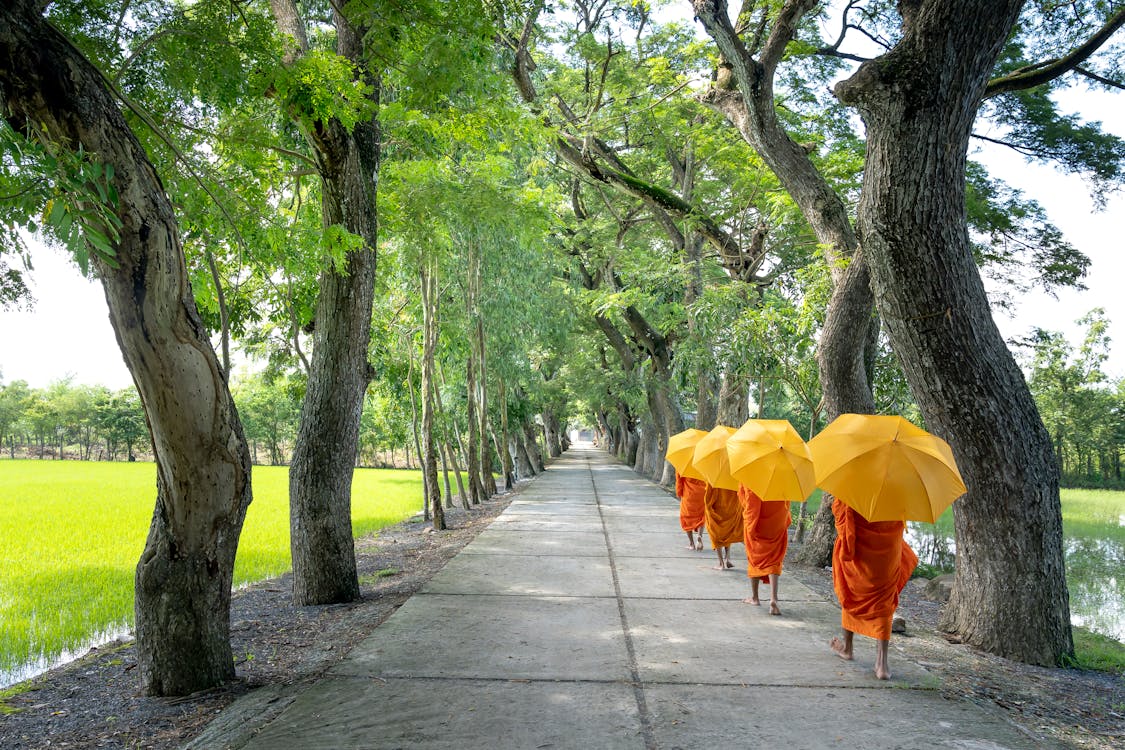
Quang Nguyen Vinh from Pexels
Unlike other holidays on this list, Pchum Ben is unique to Cambodia. There are other similar ceremonies in Sri Lanka, resembling the Ghost Festival. However, Pchum Ben’s traditions aren’t unique.
Most of these holidays aren’t scary if it isn’t obvious yet. Costumes aren’t frightening in these holidays! If anything, they ward off the scary things away!
Conclusion
I'll admit - Halloween is about candy and costumes, but it's also a time to spend with family. Every corner of the world offers us something to teach. Whether it be the bonfires of Guy Fawkes Day or the traditions of Famadihana, the bottom line is family never dies.
A person may pass away, but the person is never forgotten. The spirit of family continues to live in our memories and hearts.





